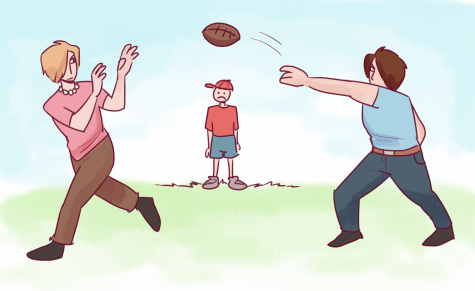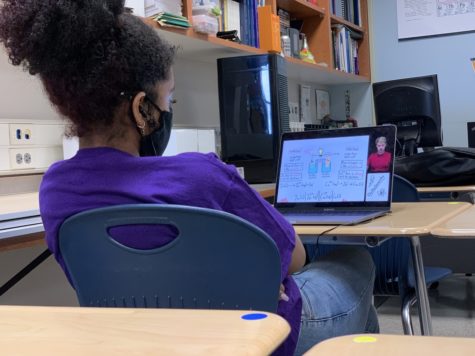Why Playing Video Games Shouldn’t Be Frowned Upon
Ben Gustafson preparing to play Madden 16 on the Xbox 360
Why do people think poorly of video games? “Video games are bad for you? That’s what they said about rock-n-roll,” said Shigeru Miyamoto, a world-renowned creator of Mario games. They can be thought of as nothing more than complex, 3-D board games, or as a movie in which you can control the story line. Video games allow us to escape our struggles while fostering motivation, creativity, and friendly competition.
Overwhelmingly in pop culture, gamers are portrayed as antisocial teenage boys. In reality, there are many gamers that do not fit the gamer stereotype. “Playing video games is something I enjoy in my spare time. I’m a gamer, always have been,” said Kevin Garnett, a professional basketball player. Only 26% of gamers are under 18 years, whereas astonishingly 27% of gamers are 50 or more years old according to a 2015 study done by Entertainment Software Association. Furthermore, there are only 12% more male gamers than female gamers. So how do video games appeal to such a large audience?
Many people play video games as an escape from the struggles of reality, and contrary to common belief, this isn’t necessarily a bad thing. According to Jane Mcgonigal in her TED talk “Gaming can Make a Better World”, Herodotus, the ancient Greek historian, wrote that the emergence of games 2,500 years ago coincided with severe famine. To combat the chaos and despair, the King of Lydia came up with a crazy solution; he instituted a kingdom-wide policy in which everyone was forced to play these dice games. On one day, everyone would eat, on the next day everyone would play the dice games, then on the next day they could eat again. And, even more crazily, it worked. They survived an 18-year famine solely on the blissful, relaxing entertainment of games. But people also use video games for other purposes than survival. “You get to lay on the couch and unwind. It takes your mind off of stressful things like school,” said sophomore Brody O’Meara.
In the gaming world, there is no such thing as an impossible challenge, and all failure is temporary. This creates a consistent sense of optimism among gamers which is not always easy to maintain in the real world. “You try, and try again, but if you simply can’t beat it, you look up how to beat it, or ask a friend,” said O’meara. There are always problems to be solved in the virtual world, whether it be slaying zombies, racing cars, or managing a basketball team.”Games offer immediate feedback, you can see your progress, you can try something and be frustrated but later learn more… that’s why game play is so engaging to us,” said Barbara Chamberlin, project director at the New Mexico State University Learning Games Lab.
As a result, gaming builds communities and connections by encouraging you to collaborate or compete. “I play with other people about 70% of the time. I like the competition; you get to play against your friends, and there’s a winner and a loser,” said O’Meara.
Because video games allow us to unwind and explore the unknown, they are a beneficial pastime. However, video games cannot provide what school, a job, or other extracurriculars can, so like everything, video games should be played in moderation.
Although video games allow you to do anything, you’d be surprised as to what the real world can offer.

Ben “BennyGeezy” Gustafson came into this world on Thanksgiving of 1999 (unfortunately the hospital food wasn’t exactly the Thanksgiving dinner that...













